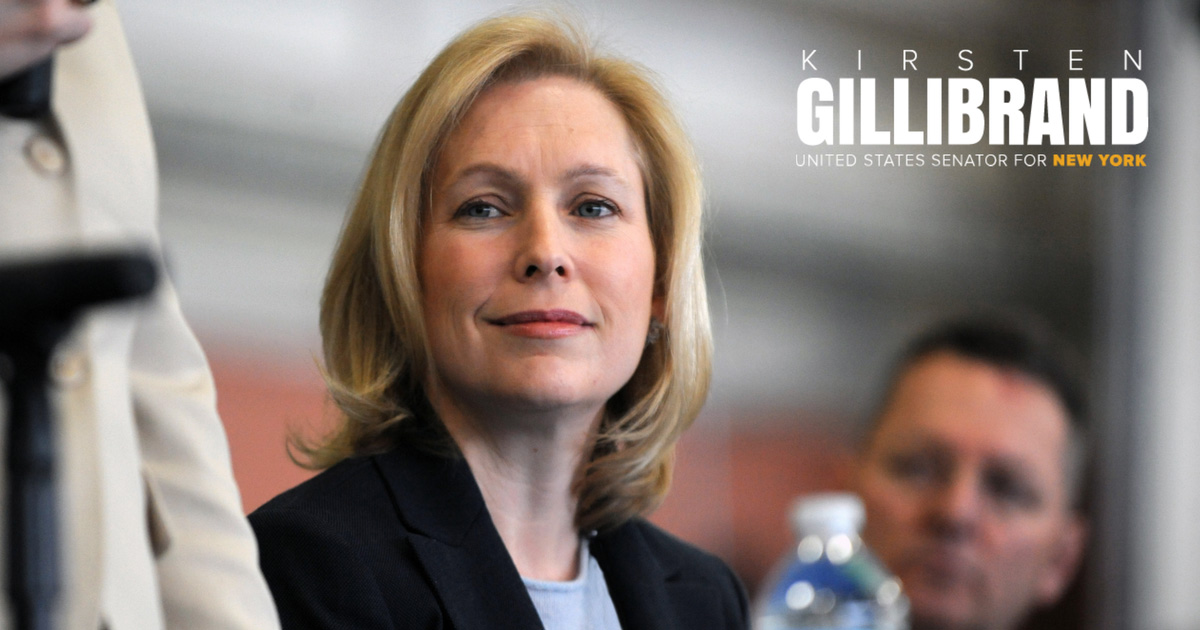Source: United States Senator for New York Kirsten Gillibrand
October 01, 2021
Between 2012 And 2016, Employment In Home Health Care In New York State Grew By More Than 56,000 Jobs; In 2017, 2.5 Million Family Caregivers In New York State Provided Approximately 2.1 Billion Hours Of Unpaid Care, Worth An Estimated $31 Billion; Home Care Workers Nationwide Earn a Median Wage Of $12 Per Hour and Roughly 18% Live In Poverty
As Congress crafts the historic Build Back Better Agenda, U.S. Senator Kirsten Gillibrand stood at the Southern Tier Independence Center (STIC) in Binghamton to call for historic investments in long-term care and the caregiver economy, building on the $12.7 billion short-term Medicaid home and community-based services (HCBS) funding that passed as part of the American Rescue Plan. Gillibrand championed and helped secure HCBS provisions in the American Rescue Plan and is now pushing to pass the bicameral Better Care Better Jobs Act to enhance Medicaid funding for HCBS and strengthen the HCBS workforce.
“Caregivers and HCBS personnel are essential workers and we must treat them as such – this means paying workers a living wage and securing benefits commensurate with their work and sacrifice. Far too many of these essential workers, a majority of whom are women and people of color, are living in poverty,” said Senator Gillibrand. “Today, I’m pushing for a $400 billion investment in Medicaid HCBS and much-needed financial relief for caregivers and their families through the bicameral Better Care Better Jobs Act. This bill would also enable seniors and people with disabilities to remain in their homes and lead independent lives while receiving dignified care. Investing in care infrastructure means investing in the future of the middle class and caring for the people who care for our communities.”
“There is a critical need for these funds, to pay a living wage, not just minimum wage, to the workers who do this difficult, physically and emotionally demanding work to assist people with disabilities to live, and participate fully, in their communities, and to mitigate the extreme worker shortage that currently exists,” said Maria Dibble, Co-Founder and Executive Director of the Southern Tier Independence Center.
“Regardless of income, we want to see all people who wish to remain in their home have the ability to access in-home care services,” said Mary Whitcombe, Director of the Broome County Office of Aging. “Home care workers and aides provide services to older adults in their home which includes hands on care, cleaning, cooking, shopping and social isolation prevention. In addition, aides provide invaluable in-home resources to caregivers including respite and breaks from the home. We can do better for older adults who built our communities and for the families now caring for older adults. We should do better.”
The COVID-19 pandemic highlighted the urgent need to ensure all Americans have the option to receive quality, long-term care in the setting that best meets their needs and preferences. Over 3.5 million older adults and people with disabilities receive home or community-based care through Medicaid, but demand has greatly outpaced supply, with more than 820,000 Americans still on the waitlist for care. The pandemic has also made it difficult for older adults and people with disabilities to receive home health services and has placed a heavy burden on Medicaid home health agencies (HHAs) and HCBS providers that struggled to adapt to telehealth services and acquire adequate PPE for in-person visits. HCBS also enable seniors and people with disabilities to remain in their homes, stay active in their communities, and lead independent lives. Yet, currently, coverage, eligibility, and benefit standards vary by state, which leads to large gaps in coverage and caps on the number of individuals who can receive these critical services.
The Better Care Better Jobs Act would facilitate statewide planning to develop HCBS infrastructure improvement plans and enhance Medicaid funding for HCBS by providing states a permanent increase in federal Medicaid match if they expand access to HCBS and strengthen the HCBS workforce. Additionally, this bicameral legislation would incentivize workforce growth. Providing better pay and benefits, education and training, and stronger career advancement opportunities to promote retention are key investments needed to meet the moment for caregivers and HCBS alike.
Senator Gillibrand championed and helped secure HCBS provisions in the American Rescue Plan (ARP), including:
- Nearly $12.7 billion towards home and community-based services;
- $145 million in funding for the National Family Caregiver Support Program (NFCSP);
- $500 million towards strike teams to support staffing shortages in nursing homes;
- $200 million towards technical assistance in nursing homes on infection control;
This legislation is endorsed by SEIU International, 1199SEIU United Healthcare Workers East, Healthcare Workers Rising, WNY Area Labor Federation, AFL-CIO, National Domestic Workers’ Alliance, National Center for Independent Living, The Arc, National Council on Aging, Justice in Aging, and Little Lobbyists.
For more information on the Better Care Better Jobs Act, click here.
